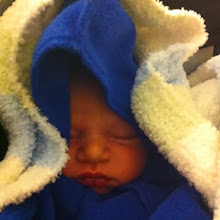“The art of keeping the seventh day is the art of painting on the canvas of time the mysterious grandeur of the climax of creation: as He sanctified the seventh day, so shall we.”
-A.J. Heschel
Every Shabbat in Rwanda, I take a walk. As I follow the red dirt path away from the village and past fields of banana trees, all the worries of the week melt away. Colorful birds dart between the flowers, showing off their bright feathers. A tall blue heron steps out from behind a bush, then spread its wings and swoops into the sky. Clouds above drift quickly, playfully, choreographing a masterpiece for those who will stop to look up. Often I walk together with one of the kids, and when I point out to them the motion in the dancing skies, I find my amazement is contagious.
On my weekly walk I stop at the highest point in Agahozo Shalom, the school, and watch the village from a distance. Rows of orange, yellow, and green houses glisten in the sun and beam down at Lake Mugesera, a shimmering mirror in the distance. It is here that I am able to both physically and mentally extricate myself from the hustle and bustle of village life. From teaching my students to mix colors, from planning for the upcoming culture show, from questioning my impact as a foreigner in a developing country, from worrying about a particular kid. The village seems small out here under the big blue sky, and though I know the importance of our work in the village far outweighs its size, I am grateful for the perspective this hilltop brings.
Agahozo Shalom is a non-denominational youth village, and children from all religious backgrounds are respected and accommodated. Often they share their religions with one another through music, song, and dance. As a Jew in Rwanda I am certainly in the minority, but I have found everyone in the village to be very accepting, at times curious, and always respectful.
Observing the Sabbath, and its welcome change of pace, is only one way that Judaism affects my experience at Agahozo. Who would have thought that in this small town in rural East Africa there would be challah baked fresh every week (and even in a shape of an idea from the weekly Torah portion!), candle lighting every night of Chanuka, and a Purim party complete with megilla and hamentaschen?! It is common to hear kids on the Agahozo farm calling in Hebrew to Tzuf, the dog belonging to two Israeli volunteers, with shouts of “Boi hena!” (come here) and “kalba tova!” (good dog). Their Hebrew seems to be progressing faster than my Kinyrwanda (almost, I happen to have pretty good Kinyarwanda and can even ask the four questions of the Passover Seder.)
Because I speak Hebrew and came to Rwanda after working in Israel, many Rwandans assume I am Israeli. When I explain that though I am American, I have a strong connection to Israel and hope to live there, my Rwandese friends nod in understanding. Many Rwandans, and much of the staff at the village, lived for large parts of their lives exiled from their homeland. Banned from Rwanda by the Hutu government, Rwandans of the Tutsi ethnicity lived for over thirty years in Uganda, Kenya, Congo, and throughout Africa and the world. Nevertheless, they spoke, dreamed, sang, and danced of Rwanda, never forgetting their homeland. In 1994, after the horrific genocide, many of them returned. One of the counselors who grew up in Uganda described to me the scene when he moved to Rwanda in 1994. “Bodies on the sides of the road, in the grass, floating in the lakes,” he recalled, oddly casual, “the ground was stained red.” Yet they came back and are fiercely proud of their culture. The longing for a homeland that they recall is one that the Jewish people have felt, sung, prayed, and written about for thousands of years.
As Passover, the holiday celebrating the Jews’ redemption from Egyptian slavery, quickly approaches, I am reminded of a message particularly relevant to my work in Rwanda. Throughout the Torah we find constant reminders to be kind to the stranger, to the widow and the orphan, and the reason given? The Jewish people were slaves in Egypt. It is the common experience of suffering that creates a moral imperative to sympathize with and act on the behalf of others. I have never seen this more clearly than in Rwanda. Most of the Rwandese staff have suffered some type of loss, often a husband, children, or parents, and it drives them to give all they can to the children of the village. The Jewish people too, have the collective memory of the Holocaust still very fresh. The correlation between Israel recuperating in the wake of the Holocaust, and Rwanda struggling to rebuild itself now, was one of the initial reasons for the creation of Agahozo Shalom. I was reminded of this connection recently, when during a discussion about the closed nature of many Rwandans, an Israeli volunteer descended from survivors recounted his grandmother’s reluctance to share her emotions after the war. The Rwandans often seem to connect to the legacy of the Jews, because genocide is a memory they can share.
Atrocities have happened, and continue to happen to all people and all over the world. This Passover, I am reminded that if suffering does happen, we can at least use the experience to reach out to others, lift their spirits, their hearts, and their heads just enough to smile at the clouds drifting by.
Wishing you a chag sameach, a very happy Passover!


